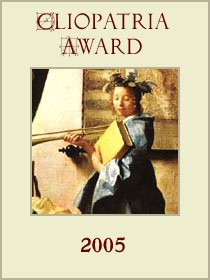One things I love about old history books – by old I suppose roughly pre-WWII, is that they embrace anecdote with enthusiasm. Modern scholars are trained to treat them with distant suspicion, but they do really help history come alive.
So some snippets from The Growth of Stuart London, Norman G. Brett-James, London and Middlesex Archaeological Society, London 1935.
“Canon Westlake discovered that the lane that led towards the Gatehouse prison was called Thieving Lane some 35 years before the prison was built, and ‘may therefore be taken to attest the character of the inhabitants rather than the nature of the traffic”, always thought to be the origin of the name. p. 129 (This is the Rev H.F. Westlake, author of St Margaret’s 1914)
The Blair government’s drinking problems are nothing new: “An Act of Parliament of I James I, cap. 9, imposed on Churchwardens the duty of going “abroade on Sabbath Dayes according to the antient usuage … to visite the public Tiplinge houses and keep good order in ye Parish”. It was pointed out that the ‘ancient true and principall use of Innes Alehouse and Victuallinge House was for the Receipte Reliefe and Lodging of wayfaring people travellinge from place to place … and not meant for entertainment and harbouringe of lewde and idle people to spend and consume theire Money and their type in lewde and drunken manner.” (p. 133)
In the 1638-9 census of foreigners, the 838 reported in Westminster were mostly “painters, picture-drawers, lymners, engravers, musicians and silver workers”. (p. 141)
Nothing like a spot of illegal building: “In January 1664 there was a petition from the inhabitants of Lincoln’s Inn Fields to the King … to demolish ‘severale wooden houses or shedds,” which had been erected by Thomas Newton under colour of a licence to his later father William Newton. These were employed by him for ‘puppet playes, dancing on the ropes, mountebanks and other such like uses, whereby multitudes of loose disorderly people are daylie drawne together”. (p. 158) (It is still a haven for the street drinkers of London.)
Piccadily was originally “the way to Reading”. The first person building there was Robert Baker, a tailor in the Strand, in 1612. The name came from the words pickadil, pekadel, pekadivela, meaning a collar, hem or skirt – either because of his trade, or because this was the “end of town”. His widow, Mary, had trouble in 1627, because waste from the by now multiple houses was polluting the Whitehall palace water supply. She was hauled before the Star Chamber and the houses ordered demolished. She instead offered to build a conduit to carry the water, but Indigo Jones, Surveyor-General, reported on 27 Jane 1639 that the work had not been done to his satisfaction. She got a fine of £1,000 – probably not paid – and the houses weren’t pulled down; they were still standing in 1651, by then numbering 11. (pp. 180-81)
Coming up in the world: The old Devonian seadog William Burroughs, second in command to Cadiz in 1587 and a ship’s commander against the Armada the following year. “In 1589 we find him furnishing Frobisher’s fleet in the tiny docks of Ratcliffe, and in the same year he married Lady Patricia Wentworth, widow of the Lord of the Manor.” (p. 193)
Roughly where the Heal’s furniture store on Tottenham Court Road is now was Capper’s Farm, inherited by two unmarried daughters “who have left traditions of spiteful conduct behind them; one who delighted in cutting the strings of boys who were flying their kites, and the other who confiscated the clothes of boys found bathing in their ponds”. (Anyone hear the other side of this as an ASBO?)
The farm survived, behind the shops, until 1913. (Probably, I’d guess as a dairy – there was also one off Leather Lane until about the same time.) (p. 403-4)



 About
About